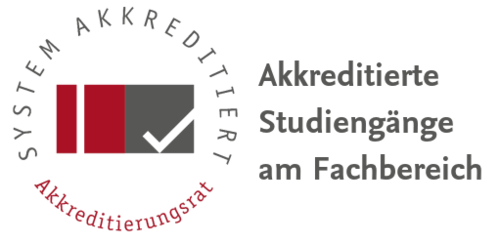ZODIAC workshop "Imagining the Sky: The Zodiac and Related Astral Imagery in the Ancient World", 21.09-23.09.2022, Freie Universität Berlin
News vom 11.07.2022
Download: Poster
Download: Flyer with program
Download: Abstracts
The project Zodiac: Ancient Astral Science in Transformation (ERC) at the Institute for the History of Knowledge of the Ancient World, Freie Universität Berlin, is hosting a workshop on 21–23 September 2022:
Imagining the Sky: The Zodiac and Related Astral Imagery in the Ancient World
Fabeckstraße 23–25, room 1.2051
14195 Berlin
Convenors: Mathieu Ossendrijver and Andreas Winkler
In the wake of the introduction of the zodiac, images played an important role in representing astral knowledge and disseminating it across the ancient world. However, ancient astral science and its cross-cultural transmission are still studied primarily on the basis of texts, with relatively little attention to images. For instance, even several well-known and strikingly similar zodiac-related images from Uruk (Babylonia) and Dendera (Egypt) have not been systematically investigated as evidence for the cross-cultural transmission of astral science. Secondly, the interactions between image and text, which have become a central topic in research on ancient mathematics, have not yet been adequately addressed in research on ancient astral science. This workshop brings together historians of science, Egyptologists, Assyriologists, classical philologists, papyrologists, archaeologists, and art historians. It focuses on the zodiac and related astral imagery (constellations, planets, moon, sun, melothesia, etc.) and diagrams from Babylonia, Egypt, and the Greco-Roman world, but it also engages with imagery from other regions, communities and periods. The objectives of the workshop are to share examples of zodiac-related imagery from different regions, communities and periods, to discuss the evidence in an interdisciplinary setting, to begin a dialogue with new approaches and tools from art history, image theory and digital humanities, and to exchange ideas about the following questions:
- What theoretically informed methods and approaches can be proposed for studying ancient astral imagery?
- What are the relations between the images and the material aspects of their carriers?
- Who produced the images and how were they produced?
- What knowledge and which practices are reflected in the images and what are their meanings, functions, and contexts?
- How to analyse and characterize the interactions among image, text, tables, and other media?
- How to analyse the cross-cultural transmission of astral imagery, and what can be said about the available examples?
Since places may be limited, we ask anyone interested in attending to RSVP before 1 September by writing to zodiac@geschkult.fu-berlin.de and providing your full name, country of residence, anf affilation (if any), and indicate whether you want to attend in person or remotely. If you have any questions, please write to andreas.winkler@fu-berlin.de.
Schedule of the Workshop
Reception (Wednesday 21/9/2022)
17.30 Reception and lecture by Susanne Hoffmann in Planetarium am Insulaner (Steglitz)
Conference day one (Thursday 22/9/2022)
9.00 Opening
9.10 Sonja Brentjes (Berlin)
Celestial imagery as chances and challenges for a history of supra-terrestrial knowledge
10.00 Susanne Hoffmann (Jena)
Visualising ancient skies: Transfer and transformation of astronomical knowledge
10.30 Break
11.00 Rune Nyord (Atlanta)
Celestial reflections: Strategies for imaging the sky and its processes in ancient Egypt
11.50 Benjamin Anderson (Ithaca)
Pictorialization in al-Sufi’s Book of the Fixed Stars
12.20 John Steele (Providence)
A new look at the images on the Neo-Assyrian circular tablet K.8538
13.00 Lunch Break
14.30 John Baines (Oxford)
Ordering the day and the night in ancient Egyptian imagery
15.20 Nicola Barbagli (Naples)
The sky in the hands: The zodiacal imagery in the coinage of Alexandria
15.50 Break
16.20 Daniela Mendel-Leitz (Tübingen)
Zu einem Detail der astronomischen Decke im Pronaos des Hathortempel von Dendara
16.50 Ilaria Bultrighini (Berlin)
Visual representations of the seven planets in Graeco-Roman antiquity
17.20 Victoria Altmann-Wendling (Würzburg)
The moon as part of the zodiac in ancient Egypt
17.50 Break
18.00 Fabio Spadini (Berlin)
The orientation of the zodiacal image on monuments of the Roman imperial period
Conference day two (Friday 23/9/2022)
9.30 Wolfgang Hübner (Münster)
Taxonomy and constraint of systematization in Hellenistic astrology
10.20 John Wee (Singapore)
The Kassite calendar of constellations
11.00 Break
11.20 Willis Monroe (Vancouver)
Cuneiform astral diagrams in theory and practice
11.50 Yossra Ibrahim (Mainz)
The making of the big picture: On the ancient Egyptian celestial diagrams and their long decorative tradition
12.20 Jeanette Fincke (Leiden)
“Conceived while Mercury stood in its DUR”. Two diagrams of planetary positions on a late Babylonian astrological tablet with nativity omens (TCL VI 13)
13.00 Lunch Break
14.30 Christian Leitz (Tübingen)
Der Tierkreis in den Litaneien von Esna
15.30 Stamatina Mastorakou (Berlin)
The zodiac in poetry and material culture in Hellenistic times
16.00 Break
16.30 Marvin Schreiber (Berlin)
Drawings and diagrams in late Babylonian astral science
17.00 Fabio Guidetti (Pisa)
The zodiac and the beginnings of Greek celestial cartography
17.30 Wayne Horowitz (Jerusalem)
The uranology texts: A new fragment and some new thoughts
18.00 Conclusion


